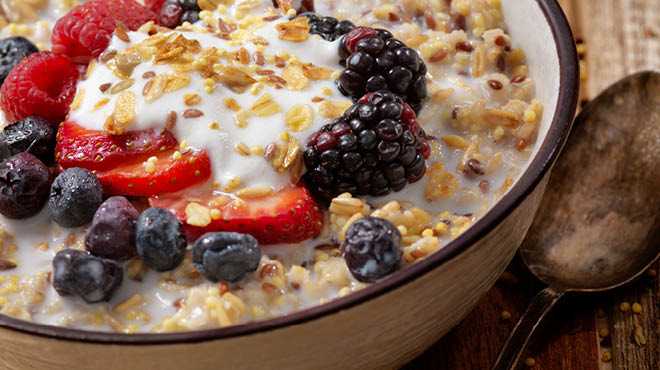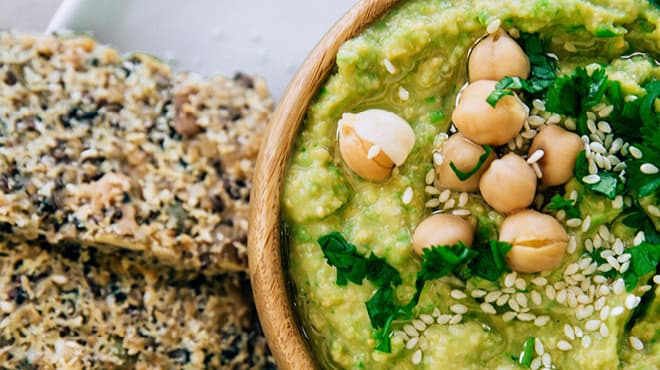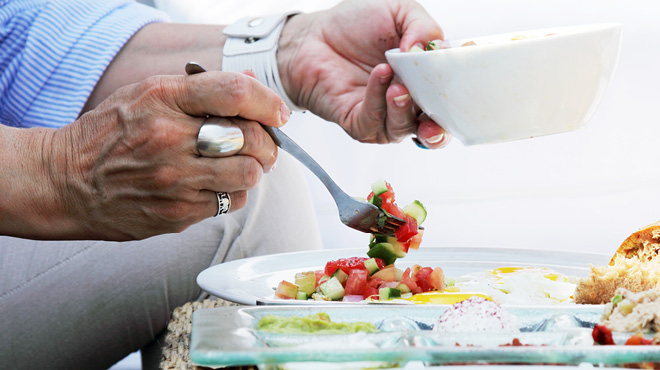Recent Posts
-
 Speaking of HealthFrom inflammation to heart health: The perks of pumpkin in your dietNovember 04, 2024
Speaking of HealthFrom inflammation to heart health: The perks of pumpkin in your dietNovember 04, 2024 -

-

Is sea salt healthier than table salt?

Sea salt has become increasingly popular. It's seen as a main ingredient in many desserts and snacks, and many recipes call for it by name. Often, terms such as "organic," "natural" and "pure" also accompany products that contain sea salt, alluding that it's a healthy alternative to table salt. But is it really a reason to put the salt shaker back on the table?
Differences and similarities
The main differences between sea salt and table salt are in their tastes, texture and processing. Sea salt comes from evaporated seawater and is minimally processed, so it may retain trace minerals. The minerals sea salt contains depend on the body of water where it's evaporated from. This also may affect taste or color of the salt. In terms of health, the minerals are minor and easily consumed through daily food intake.
Regular table salt comes from salt mines and is processed to eliminate minerals. In addition to iodine — an essential nutrient that helps maintain a healthy thyroid — table salt usually contains an additive to prevent clumping.
Experts recommend limiting salt of any kind in your diet because this common food topper contains sodium. For some people, sodium can increase blood pressure because it holds excess fluid in the body. The sodium content of sea salt and table salt is identical — 40% when measured by weight. However, some sea salt may have larger crystals than table salt, so the sea salt may have less sodium by volume because fewer crystals will fit in a measuring device such as a spoon.
Whether you choose to use sea salt or table salt, remember to use in moderation. Better yet, experiment with herbs and spices to add flavor to your food and keep the salt shaker off the table.
Flavorful alternatives to reduce salt intake
These seasoning recommendations from the American Heart Association add variety to your foods:
- Allspice — Lean meats, stews, tomatoes, gravies
- Basil — Fish, lean meats, stews, salads, soups, sauces, fish cocktails
- Bay leaves — Lean meats, stews, poultry, soups, tomatoes
- Caraway seeds — Lean meats, stews, soups, salads, breads, cabbage, asparagus, noodles
- Chives — Salads, sauces, soups, lean meat dishes, vegetables
- Cider vinegar — Salads, vegetables, sauces
- Curry powder — Lean meats, lamb, veal, chicken, fish, tomatoes, tomato soup, mayonnaise
- Dill — Fish sauces, soups, tomatoes, cabbages, carrots, cauliflower, green beans, cucumbers, potatoes, salads, macaroni, lean beef, chicken, fish
- Garlic (not garlic salt) — Lean meats, fish, soups, salads, vegetables, tomatoes, potatoes
- Ginger — Chicken, fruits
- Lemon juice, paprika, parsley — Lean meats, fish, soups, salads, sauces, vegetables
- Mustard (dry) — Lean ground meats, lean meats, chicken, fish, salads, asparagus, broccoli, Brussels sprouts, cabbage, sauces
- Nutmeg — Potatoes, chicken, fish, lean meatloaf, toast, veal
- Onion powder (not onion salt) — Lean meats, stews, vegetables, salads, soups
- Rosemary — Lean meats, poultry, meatloaf, sauces, stuffing, potatoes, peas, lima beans
- Sage — Lean meats, stews, biscuits, tomatoes, green beans, fish, lima beans, onions, pork
- Thyme — Lean meats, veal, pork, sauces, soups, onions, peas, tomatoes, salads
- Turmeric — Lean meats, fish, sauces, rice
Allie Wergin is a dietitian in Diabetes Education, and Nutrition Counseling and Education in New Prague, Minnesota.


